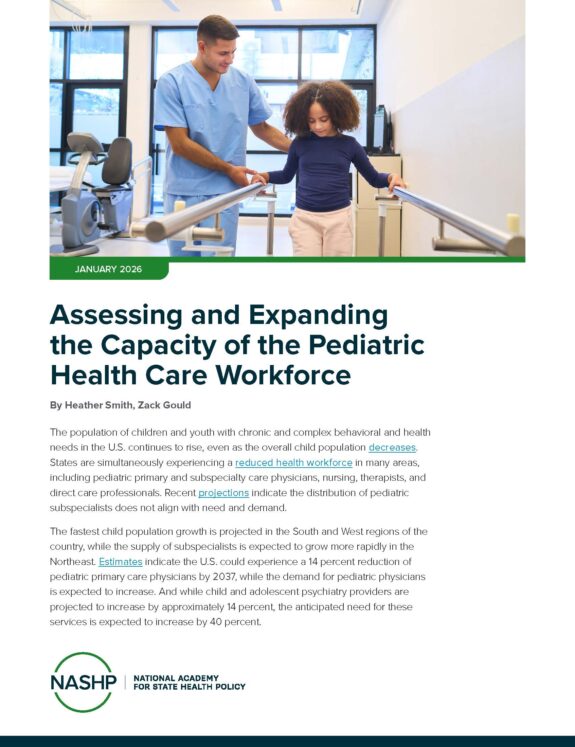Remembering Katie Beckett
Katie Beckett died May 18 at age 34, in the same Cedar Rapids hospital where she lived for the first three and a half years of her life. In the early 1980s, Katie and her family became emblematic of a national effort for children and people with disabilities to receive long-term care in their homes rather than in hospitals. In the intervening 30 years, numerous legislative and regulatory changes have allowed millions of people to live with their families and participate in their communities.
Following her premature birth, Katie contracted encephalitis at five months, resulting in partial paralysis of her diaphragm. She recovered almost completely but still needed a ventilator at night. The costs of her inpatient care quickly exceeded her parents’ private health insurance lifetime maximum. Medicaid then began to pay her health care bills, but under existing regulation, Medicaid would pay for the ventilator only in a hospital. St Luke’s Methodist Hospital in Cedar Rapids became Katie’s home.
Katie’s mother, Julie, a middle-school social studies teacher, worked relentlessly with Congressman Tom Tauke (R-IA) and other officials to waive the Medicaid regulation in Katie’s case, noting among other things that it would be substantially less expensive for Katie to be cared for at home. Ultimately, Senators Charles Grassley (R-IA) and Tom Harkin (D-IA), then-Vice President George H.W. Bush, and President and Mrs. Ronald Reagan all became involved until an exception was made in Katie’s case and she came home.
With the beginning of Katie’s new life outside of the hospital, Julie began working to change Medicaid law state-by-state. It was thought at the time that only a few children lived in hospitals or nursing homes, but over the years the “Katie Beckett Waiver Program” or “Home and Community-Based Services Waiver” has allowed more than one million people to receive services at home. As the first beneficiary of this new program, Katie grew up, graduated from college, wrote a novel, and served as a policy advocate and a social services agency volunteer.
Julie and Katie became well known child health and disability advocates, involved in every publicly debated issue concerning children’s health care and people with disabilities. Together they participated in many successful legislative advocacy efforts. These include the Americans with Disabilities Act of 1990; the Individuals with Disabilities Education Act (IDEA) of 1997; the State Children’s Health Insurance Program of 1997; the Ticket-to-Work Act of 1999; and the Family Opportunity Act of 2005, among many others.
On her death, Senator Tom Harkin spoke of Katie to Joseph Shapiro of National Public Radio:
“(Her life) was really what the Americans with Disabilities Act is about … we don’t separate people with disabilities out … they are part of families and communities… just an integral part of society.”
I had the privilege of working on children’s health and Medicaid law with Julie and Katie in Washington, DC, for eight years. Katie had experiences far different from those of most people in their 20s and 30s — favorite toys given to her by First Lady Nancy Reagan, a scrapbook with People magazine articles, and a video of a press conference where a reporter asked Ronald Reagan, “But Mr. President, what about that little girl in Iowa?” U.S. Senators warmly greeted her by name.
I attended the 20th Anniversary Celebration and Conference for the Home and Community-Based Services Program (“the Katie Beckett Waivers”) with Katie. During the conference, a mother stopped us and thanked Katie for everything she had done for her family. As often happened, Katie seemed a bit uncomfortable with the attention, but she told me that she continued her advocacy work because “I know I mean something important to families.”
For more information about Katie’s life and work, visit her Facebook memorial site. Her family asks that you consider posting comments to her page if you or a family member benefitted from a Katie Beckett Waiver program.
Additional comments and press coverage about Katie’s life:
The NY Times published Katie’s obituary on May 22.
Senators Charles Grassley (R-IA) and Tom Harkin (D-IA) gave a tribute to Katie’s life on the Senate floor on May 22. Senator Harkin’s remarks begin at the 3:04:08 mark (slide the bar under the video), followed by Senator Grassley.

